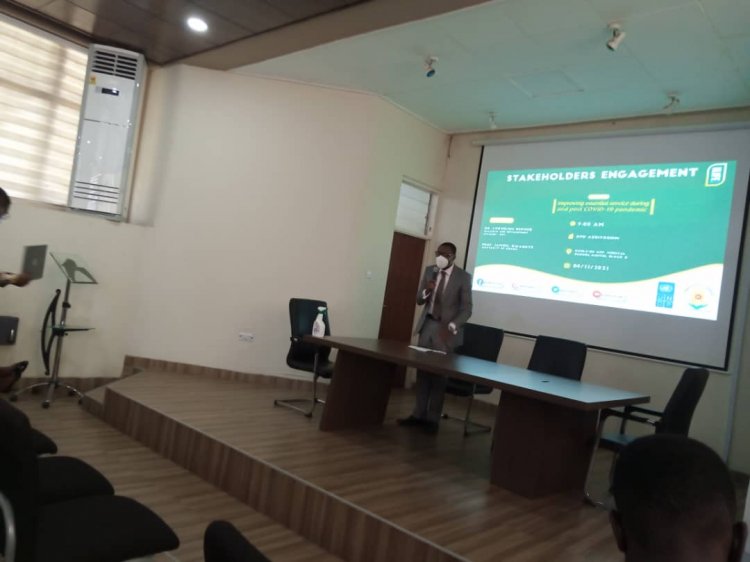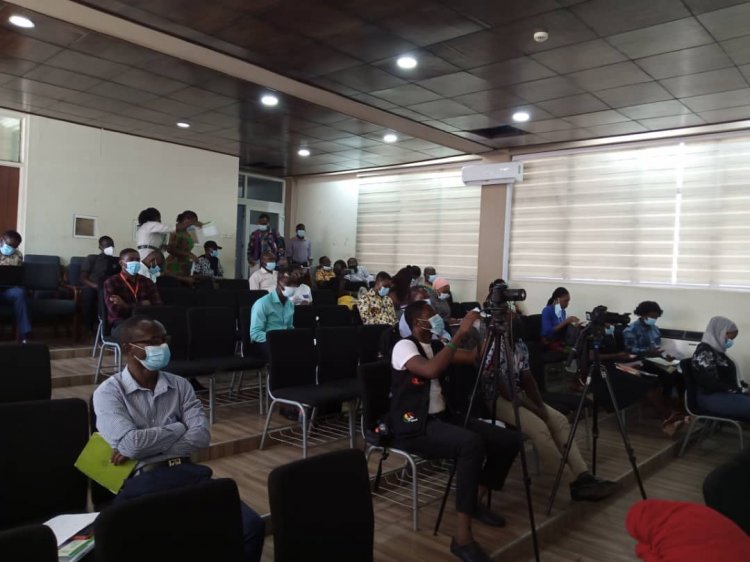Intensify Public Education on Safety Standard of COVID-19 Vaccines -GHS Urges Media Practitioners
Mr Aboagye, Director of Health Promotion Division at the Ghana Health Service has encouraged the public not to fret over safety issues concerning vaccines for the coronavirus disease (COVID-19), as the government is committed to ensuring that all the vaccines it is acquiring will be safe for use locally.

Ghana Health Service (GHS) has called on media practitioners in Ghana to intensify public education on the safety and quality standard of coronavirus (COVID-19) vaccines to prevent conspiracy theories about the death jab, to promote public confidence in the vaccines.
The GHS allayed fear that the COVID-19 vaccines are dangerous to human life, saying that it behoves the media practitioners to increase education on the quality and safety standard of the vaccines to let the general public not be wary about potential side effects of COVID-19 vaccines.
According to the GHS, the health providing institutions are safe and that the COVID-19 patients are treated with respect and dignity and called on the media to continue to run a campaign to defuse claims and encourage people to receive the vaccine.
The Director of Health Promotion Division at the Ghana Health Service, Dr Aboagye Dacosta made the call when he was giving the opening address at a media practitioners engagement to brief them on the current update of the COVID-19 pandemic in the country.

Themed, "Improving the essential service during and post COVID-19 Pandemic," the event organised by the Ghana Health Service and held at the Health Promotion's Auditorium in Korle Bu Teaching Hospital in Accra was aimed at engaging the media to support in strengthening structures to improve access to relevant health services during and post the COVID-19 pandemic.
According to the GHS, since the declaration of the COVID-19 pandemic and subsequently confirmed cases in Ghana, the country's health resources have been dedicated to curtailing the pandemic to the detriment of other essential services such as maternal, child health, HIV/AIDs, TB, malaria etc.
These actions, he said, contributed to a reduction in the uptake of essential health care services especially MCH and nutrition services as well as infectious diseases.
This challenge according to GHS demands Immediate interventions to restore trust and improve uptake of health services to prevent reversal of gains made from the effective implementation of health programmes.
It has informed its current decision to engage 50 media practitioners to support strengthening structures to improve access to relevant health services during and post the COVID-19.
Speaking further, Mr Aboagye encouraged the public not to fret over safety issues concerning vaccines for the coronavirus disease (COVID-19), as the government is committed to ensuring that all the vaccines it is acquiring will be safe for use locally.
He has called for intensified media support to address what they think is fatigue and hesitancy of the Covid-19 vaccine and reminded the media of its key role in advising the public to take the vaccine.
Freeman Koryekpor Awlesu, Greater Accra Regional Correspondent


 Joana Somiah
Joana Somiah 


































